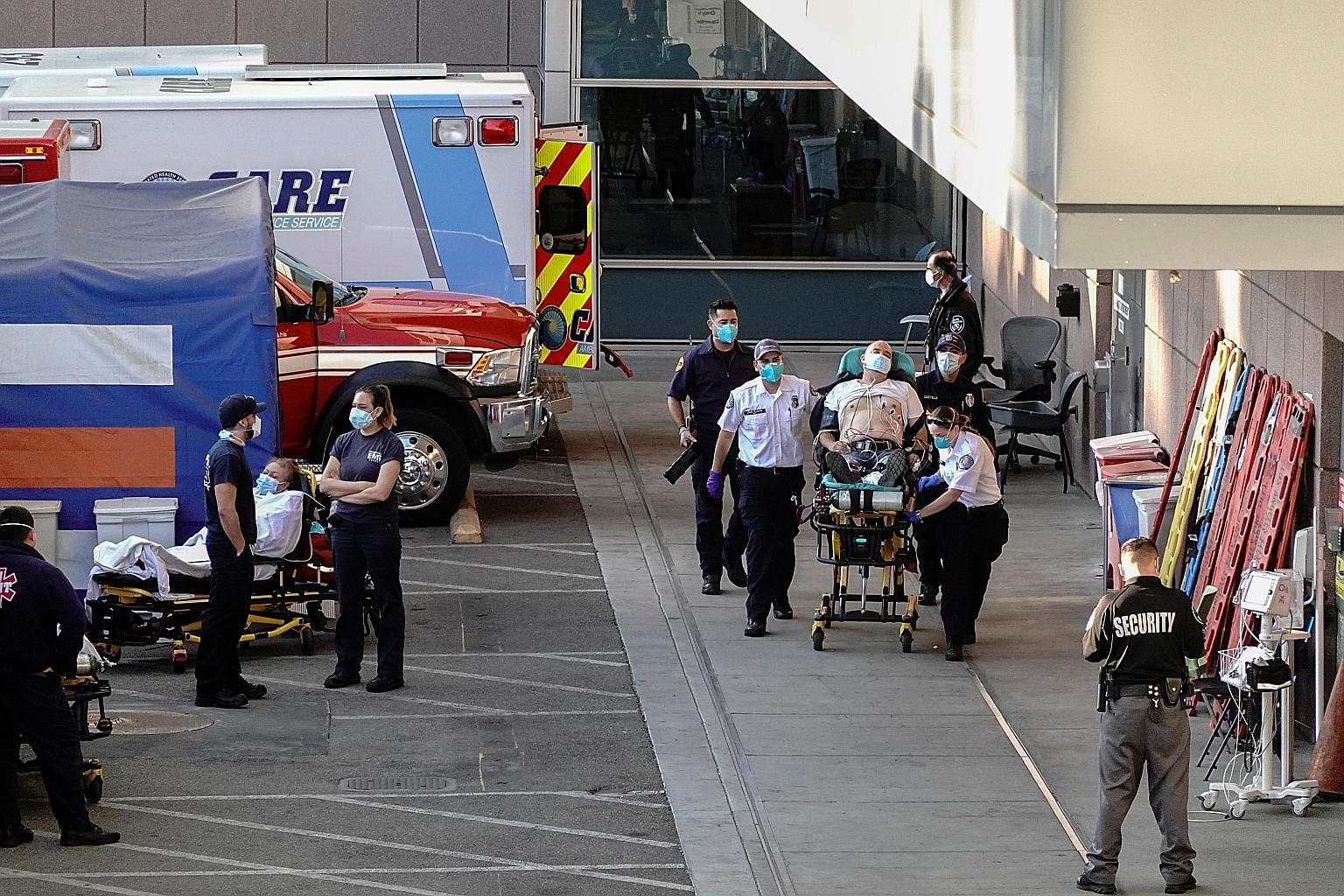Coronavirus: United States
US health officials warn of post-holiday infection surge
Sign up now: Get ST's newsletters delivered to your inbox

Paramedics escorting a patient to the hospital emergency room in Los Angeles on Sunday, as the United States added one million new Covid-19 cases in just six days, according to figures from Johns Hopkins University.
PHOTO: REUTERS
Follow topic:
WASHINGTON • Current and former US health officials have taken to the airwaves to warn Americans of a potential jump in coronavirus cases after the holidays.
"A surge upon a surge" may be on the way after the Christmas and New Year period, Dr Anthony Fauci, the government's top infectious diseases doctor, warned on CNN's State Of The Union programme.
Former US Food and Drug Administration chief Scott Gottlieb said on CBS' Face The Nation that "we have a grim month ahead of us" after a recent increase in cases, with hospitalisations rising on a lag of a few weeks.
The comments on Sunday came as the number of confirmed Covid-19 infections in the United States surpassed 19 million and deaths linked to the disease reached 333,000.
The country has added another one million new cases in just six days, according to figures from Johns Hopkins University.
Dr Fauci, director of the National Institute of Allergy and Infectious Diseases, warned that the US is at a "very critical point" in combating the pandemic after many Americans ignored guidance to avoid travel.
Flying has picked up of late despite remaining well below levels from a year ago. Figures from the Transportation Security Administration show more than one million people moved through US airport checkpoints on five of the past nine days heading into and through the holidays.
Admiral Brett Giroir, a member of the White House coronavirus task force, said the risks entailed by travelling depend mostly on what people do once they get to their destinations, as actually being in an airplane is typically safe.
"What we really worry about is the mingling of different bubbles once you get to your destination," Adm Giroir said on Fox News Sunday.
Vaccinations in the US began on Dec 14 with healthcare workers and residents of nursing homes being inoculated with Pfizer and BioNTech's vaccine.
So far, almost two million vaccine doses have been administered in the country, according to a state-by-state tally compiled by Bloomberg.
Those numbers are accelerating as a second vaccine by Moderna is being distributed, but officials say the pace of the roll-out is slipping behind schedule.
Health officials are on alert for a more infectious strain of the virus that has emerged in Britain, Germany, Switzerland, Ireland and Japan, though there is no clear evidence that it results in more severe cases of the disease.
Travellers arriving in the US from Britain face more restrictions because of the new variant, with the US insisting on passengers testing negative for Covid-19 within 72 hours of departure from Britain.
Dr Gottlieb, a board member of Pfizer, said he believes Britain's virus strain is already in the US, and in "a reasonable number at this point".
He saw signs that America's new daily Covid-19 cases were starting to plateau, but since hospitalisations and fatalities tend to lag by two to three weeks, "we have a very difficult month ahead of us".
US President Donald Trump has remained silent about the new variant and the worsening crisis gripping some parts of the country.
He took to Twitter last Saturday to criticise Democratic governors for taking emergency steps to contain the outbreak. "The lockdowns in Democrat-run states are absolutely ruining the lives of so many people," Mr Trump tweeted.
BLOOMBERG, AGENCE FRANCE-PRESSE

